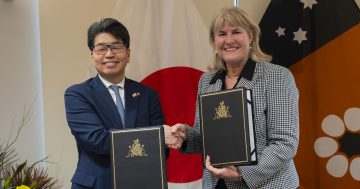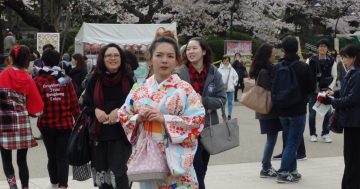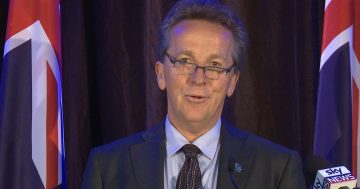Elli Pohlkamp* says Shinzo Abe’s aggressive and successful diplomacy has helped make Japan a pillar of liberal democracy. His successor has vowed to protect that legacy.
 New Japanese Prime Minister, Yoshihide Suga (pictured), has long been the right-hand man of his predecessor, Shinzo Abe.
New Japanese Prime Minister, Yoshihide Suga (pictured), has long been the right-hand man of his predecessor, Shinzo Abe.
As such, he is expected to bring both continuity and stability to the Government.
Suga’s administration will remain in power until at least October 2021, when the next General Election is scheduled to take place, so what are the implications of his victory?
As the longest-serving chief Cabinet Secretary in Japan’s history, Suga has dedicated his life to running the Abe Government and has been involved in all its major domestic and international policies.
Unlike Abe, Suga has navigated the world of Japanese politics without the privileges that come with membership of a political dynasty or, until now, strong backing from a party faction.
He excelled partly because he has kept a tight hold on the nation’s bureaucracy. Suga has successfully coordinated domestic affairs (including through several scandals that struck the Abe administration) and overseen crisis management at home.
Domestically, his priority is to tackle the effects of the COVID-19 pandemic and to decide what to do about the Tokyo Olympics.
The Japanese economy has been deeply affected by the crisis. Consumption, international trade, and other forms of economic activity have declined.
The biggest challenge for Suga is to spark an economic revival that leads to sustained growth.
His Government is likely to adopt an enhanced version of ‘Abenomics’ (a concept based upon the ‘three arrows’: Monetary easing, fiscal stimulus, and structural reform.
He will also pursue a proactive fiscal policy that includes stimulus packages until the pandemic is under control.
In addition, he has promised to introduce measures to protect jobs, create vibrant regional economies, and build a reliable social security system suited to a rapidly ageing society.
Suga’s diplomatic skills are mostly untested, and he lacks Abe’s personal friendships with world leaders.
He will try to develop his own style but will primarily adopt and intensify Abe’s diplomatic policies.
The major foreign policy challenges he faces are in steering Japan’s diplomacy through turbulent relations with its immediate neighbours, a heightened US-Chinese conflict, and deteriorating international cooperation.
Abe’s aggressive and successful diplomacy has helped make Japan a pillar of liberal democracy and a beneficiary of the rules-based international order. Suga has vowed to protect these interests.
Like Abe, he regards the long-standing Japan-US alliance as the first priority of his diplomacy. In this context, the US-Chinese conflict is a major concern for Japan.
The United States is Japan’s only security ally, while China is its largest trade partner.
One of Suga’s biggest immediate diplomatic challenges will be to ensure that Japan skilfully manages its relations with the US (especially with regard to the American presidential election in November) and with China (amid conflicts over trade and territorial issues).
In this, he will need firm and reliable political instincts.
Given that Japan’s relationship with South Korea has severely deteriorated in recent years, a change in Prime Minister might provide an opportunity to resolve the conflicts between them.
Under Abe, the Government developed and deepened its strategic partnership with European Union member States and other European countries.
The pandemic and the currently tense relationship between the EU and China have brought to light the values, interests, and priorities that the EU and Japan share, such as support for a rules-based international order and multilateralism.
Therefore, the EU has an opportunity to develop its relationship with Japan more vigorously.
The relationship has grown in recent years as a result of various frameworks including the EU-Japan Strategic Partnership Agreement and the EU-Japan Economic Partnership Agreement.
The relationship is on a very positive track, and Suga will continue to support it as Prime Minister.
The EU and Japan have an opportunity to distance themselves from China to some extent, and to enhance their collaboration with each other in areas such as the diversification of sources of 5G equipment.
Ultimately, Japan’s ability to remain a visible player in the international community will depend on Suga’s determination and openness on the world stage.
It will also turn on his ability to enhance collaboration with other countries, and to manage the burden of the pandemic at home.
*Elli Pohlkamp is a policy fellow at the Berlin-based think tank, Progressives Zentrum.
The article first appeared on the website of the European Council on Foreign Relations.











